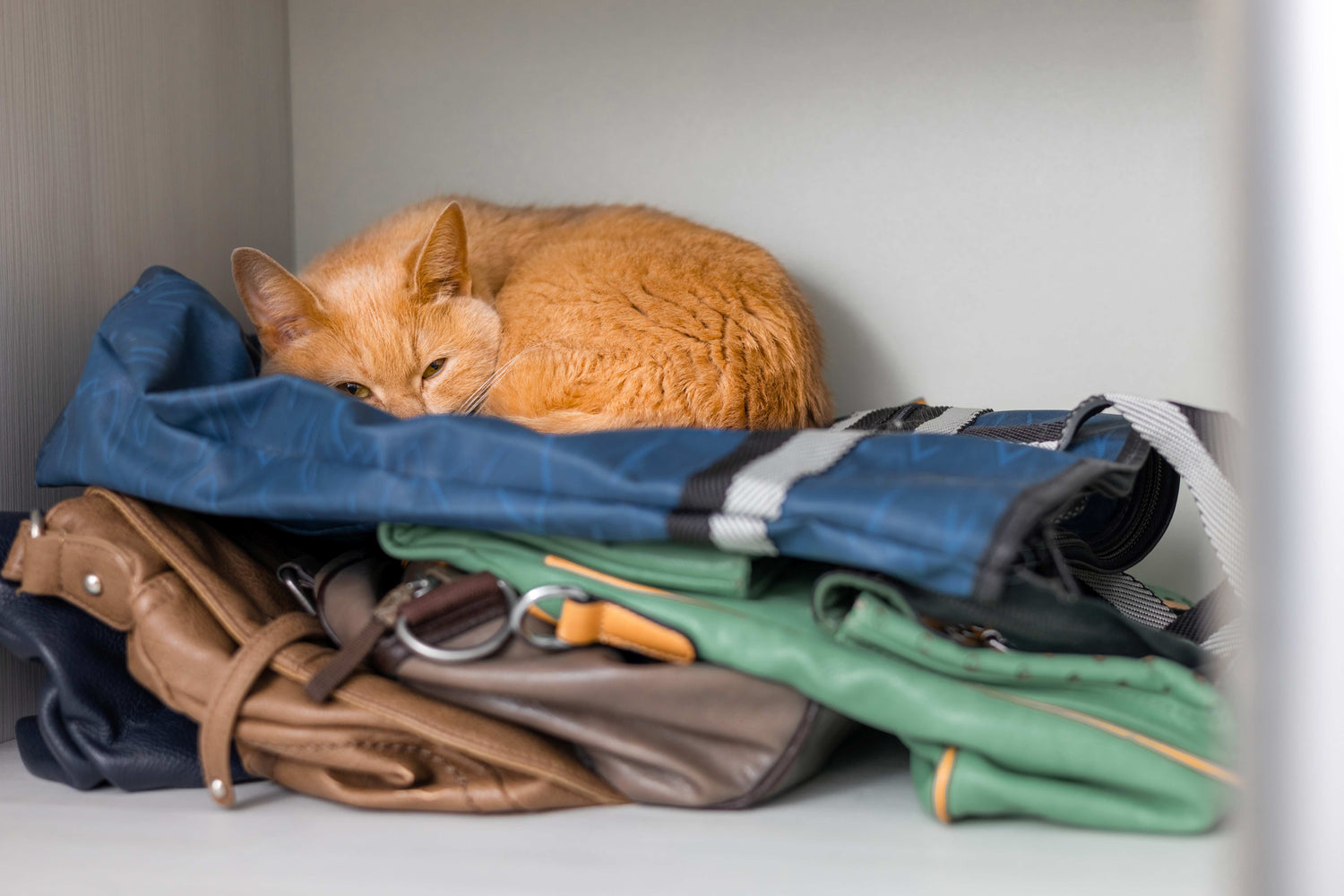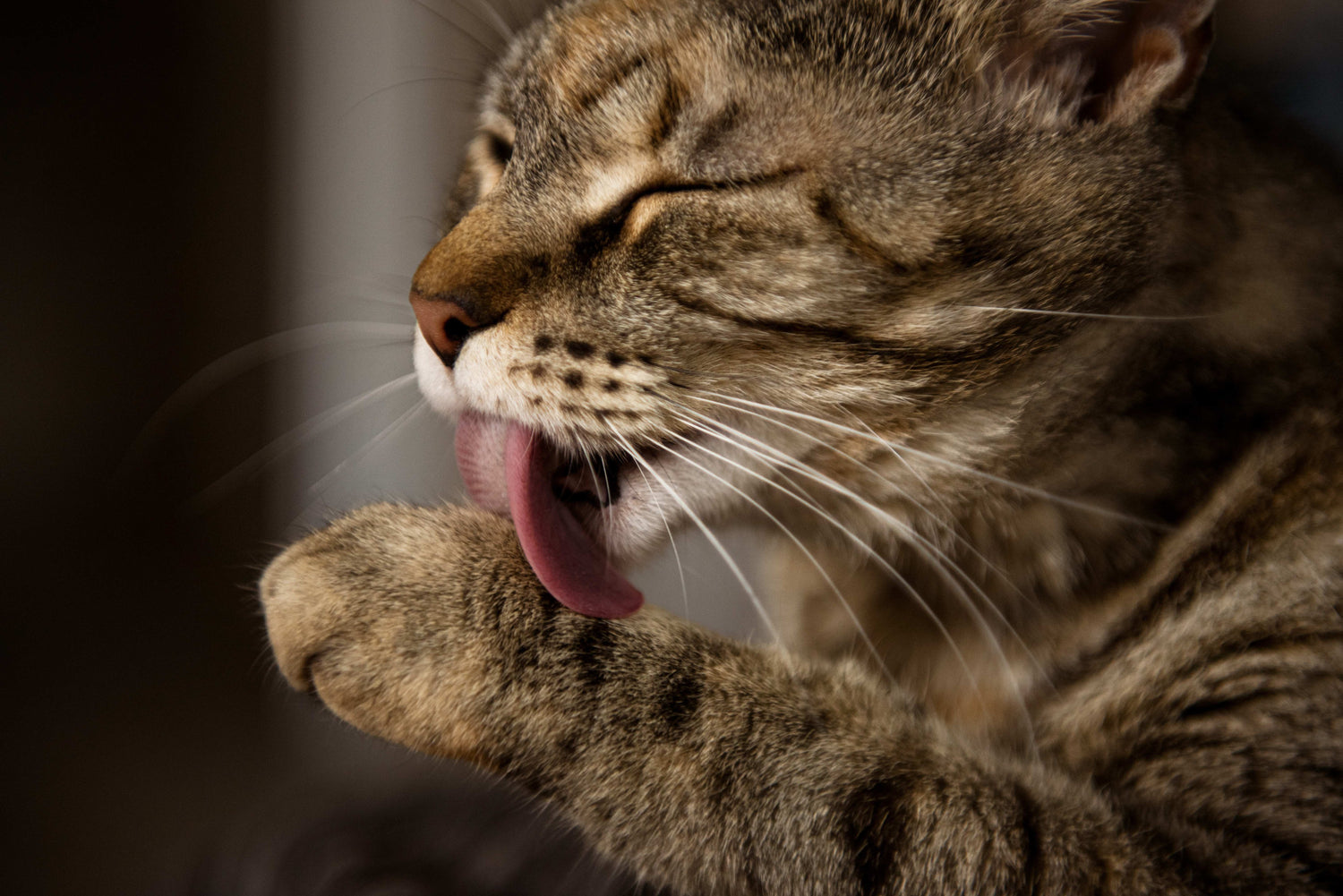Cats' bowel movements are probably not a topic of discussion very often - but your cat's stools actually provide important information about its health and well-being. Find out here what frequent bowel movements in your cat mean and how you can tell from its stool whether your pet is well.
When is bowel movement too frequent?
The frequency of bowel movements can vary from animal to animal. Cats usually do their business once or twice a day, with a maximum interval of 36 hours. The important thing is that the cat's bowel movements occur regularly and not, for example, not at all one day, but several times the next.
To find out whether your cat's bowel movements are normal, you should observe them over a longer period of time and get to know their routines. The time between eating and defecating is usually between 12 and 24 hours for cats. If your cat uses the litter box more than twice a day, it is a frequent bowel movement. Frequent bowel movements can be a sign of health problems in the cat. To get to the bottom of the cause, you should take a closer look not only at the frequency of bowel movements, but also at the consistency of the stool.
[Gastro+Sensitive]
Healthy feces of the cat
The color, consistency, amount, smell and nature of a cat's stools provide information about its health. A cat's stools are usually brown and have a firm but not too hard consistency. If the stool is very soft or liquid and is passed more frequently , it is diarrhea . The amount of stool depends on the size of the cat and the amount of food it eats. Here too, you should pay attention to any irregularities, for example if the amount of stool varies greatly from day to day.
The stool is usually about 1.5 to 2 centimeters in diameter and is elongated in shape. If the stool is smaller, larger or appears in unusual shapes such as small, round balls, various diseases which may also be due to dehydration.
Also pay attention to the smell of the feces : Of course, the droppings left by your cat in the litter box do not have a pleasant smell. This is partly due to the cat's food, which is very rich in proteins that the animals need. However, if the smell suddenly changes significantly or the feces smell unusually unpleasant, you should also have the causes clarified. One reason for the bad smell of the feces could be, for example, that the food only contains very low-quality proteins.
What the color of the feces reveals about your cat
In addition to consistency and smell, the color of the feces also says a lot about your cat. The feces of healthy cats are usually brown. However, if you notice a change in color and it even has noticeable nuances, there could be something wrong with your cat's digestion. The following colors can tell you a lot about your cat's health:
- Gray : Gray or clay-colored feces in cats indicate problems with the pancreas . This could be, for example, inflammation of the pancreas (pancreatitis), which often occurs in combination with abdominal pain, diarrhea, vomiting and apathy. Pancreatitis can also be associated with other diseases such as diabetes , kidney failure and intestinal diseases.
- Red : Red stools are a clear sign of bleeding, especially in the lower digestive tract. If you notice blood in your cat's stool or if it is red, consult a veterinarian immediately.
- Black : Black stools should also set off alarm bells. Black stools indicate bleeding in the upper digestive tract, for example in connection with stomach bleeding or a tumor. In this case, too, you should see a vet as soon as possible.
- Yellow : If your cat excretes yellow or very pale stools, this can have various causes. It could be diseases of the gallbladder, liver or pancreas, but also ongoing antibiotics The cat should be examined by a vet immediately. A pale color of the stool can also be caused by too high a grain content in the food.
In general, if your cat's stool changes color, you should immediately see a vet to get a diagnosis. A change in the consistency of the stool, such as diarrhea, is also best examined by a vet. Take a stool sample from your cat with as little cat litter mixed in as possible for the examination.
Diarrhea
Diarrhea is usually difficult to detect in cats and is often overlooked at first - especially in cats that go outside . In general, a distinction can be made between large intestine diarrhea and small intestine diarrhea. Small intestine diarrhea, which is a little more noticeable, manifests itself in thin and watery stools that the cat passes more frequently than usual. Large intestine diarrhea, on the other hand, has a soft consistency but is not watery. Even if the stool is slightly softer than usual, your cat may have diarrhea and therefore a bigger problem.
Diarrhea is often accompanied by other symptoms such as vomiting , loss of appetite and tiredness . Diarrhea causes your cat to lose a lot of fluid and valuable electrolytes in a short space of time. For this reason, you should see a vet immediately if the diarrhea occurs frequently and lasts longer than 24 hours.

Causes of a change in stool
The causes behind frequent bowel movements, a change in the consistency and color of the stool, and symptoms such as diarrhea are varied and should not be taken lightly:
- Food : Cats have a very sensitive digestive system and their diet is of course closely linked to their bowel movements. A change in the stool and, for example, diarrhea can be caused by an abrupt change in the cat's food, to which the cat reacts sensitively. A change in food should therefore always be carried out gently and slowly. It is also possible that your house cat has an intolerance or even an allergy to an ingredient in the food, which can upset the digestion. A food intolerance can often also be the cause of a very bad smell in the stool. Ideally, the food should contain high-quality proteins and sufficient nutrients and should be fed in several small portions a day.
- Stress: If your cat is stressed due to a change such as moving house, new furniture or a new roommate, this can also affect its digestion. If your cat's usual life has changed recently and you cannot detect any other symptoms, you should consider this cause. Give your cat plenty of opportunities to retreat and try to keep changes to a minimum.
- Poisoning : Sometimes a cat may ingest something poisonous, such as fertilizers, pesticides, cleaning products or certain plants, inside or outside the home. Poisoning often results in diarrhea, malaise, vomiting and changes in bowel habits. Make sure your cat does not have access to poisonous houseplants or liquids and seek veterinary attention if symptoms appear.
- Parasites : An infestation with parasites such as worms or Giardia also manifests itself through digestive problems and a change in stool. Long strands in your cat's stool can indicate an infestation with roundworms. If there are small, light spots in the stool or in the fur around the anus, that resemble grains of rice, it could be the eggs of tapeworms. For treatment, it is best to visit a vet and bring a stool sample so that the doctor can determine which parasites your cat is suffering from.
- Intestinal inflammation : Acute or even chronic inflammation of the intestines in cats leads to diarrhea, vomiting, abdominal cramps and slimy or even bloody stools. These symptoms can quickly become dangerous for your pet and lead to the loss of valuable nutrients, so treatment by a veterinarian is essential.
- Colon cancer : Diarrhea, blood in the stool, constipation, painful bowel movements and frequent vomiting can be signs of colon cancer and a tumor in the cat's intestine. The earlier the diagnosis is made, the better your pet's chances of being treated. For this reason too, it is very important to have the causes clarified if there is a change in your cat's bowel movements.
diagnosis by the veterinarian
There are many reasons for frequent or changed bowel movements in cats - but in most cases there is a serious impairment or illness behind it. If you notice persistent or recurring digestive problems in your cat, a visit to the vet is necessary. If possible, bring a stool sample with you to make the diagnosis easier. The vet will examine your cat thoroughly and, if necessary, perform a colonoscopy. In addition to possibly prescribing medication, your vet can also recommend a change in diet and cat food tailored to your cat's needs.
special food for cats
Depending on the cause of your cat's digestive problems, special food can help to provide valuable nutrients and fatten up the cat. If your cat suffers from a food intolerance or allergy, hypoallergenic light food is ideal to ensure your cat's nutrition. For cats with sensitive stomachs or chronic intestinal diseases, easily digestible and low-fat diet food . If your cat is underweight due to digestive problems and possible illnesses or needs to be fattened up after an operation, specially developed Building up diets help them to absorb sufficient nutrients and calories with only a small amount of food.





